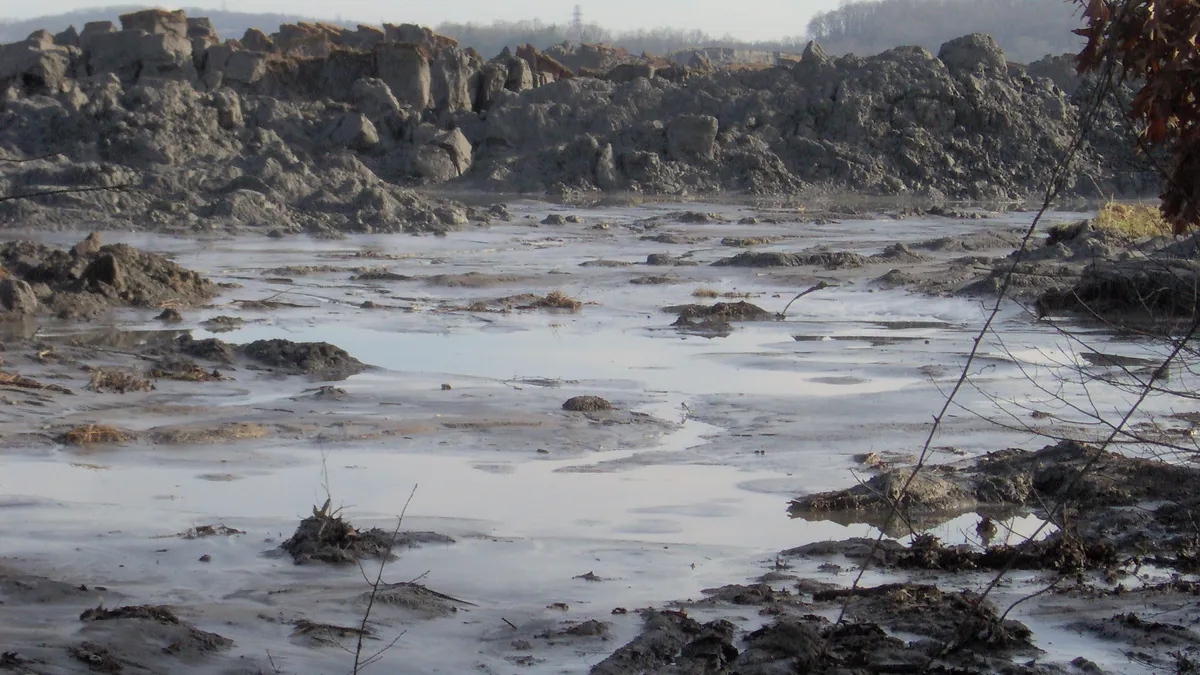Dive Brief:
- North Carolina regulators have directed Duke Energy to control coal ash contamination at its L.V. Sutton facility after tests showed elevated levels of boron down-gradiant from the facility.
- The utility is already fighting a $25 million fine for contamination at the facility, the largest environmental fine in the state's history.
- Duke has until July 9 to comply with the order, or it could face civil penalties and other enforcement actions, regulators said.
Dive Insight:
Duke Energy's L.V. Sutton facility continues to be a headache for the utility. While it has already pledged to "vigorously contest" the state's record-setting penalty for coal ash contamination there, now it faces further scrutiny at the facility.
While the levels of boron in water supply wells does not exceed state standards, the North Carolina Department of Environmental and Natural Resources told Duke it needed to address the contamination, including developing a strategy and filing necessary plans.
"In order to ensure protection of existing water supply wells, we order Duke to take immediate action to control and prevent the further migration of coal ash contaminants," the agency said in its June 9 order.
Duke is working to close 32 ash basins across North Carolina, with a plan to begin at four facilities: Asheville, Dan River, Riverbend, and Sutton.
In 2013, monitoring data indicated that groundwater near the Sutton plant was starting to move in the direction of the Flemington community. Residents there get water from Cape Fear Public Utility Authority wells, located near the Sutton plant. Duke said the water supply is safe and continues to meet federal and state drinking water standards, with a margin of safety, and there is no health risk to the residents.
The company is appealing the $25 million fine, and Paul Newton, president of Duke's North Carolina operations, called it "regulatory overreach."
"The actions by NC DENR send a chilling message to the North Carolina business community," he said.














